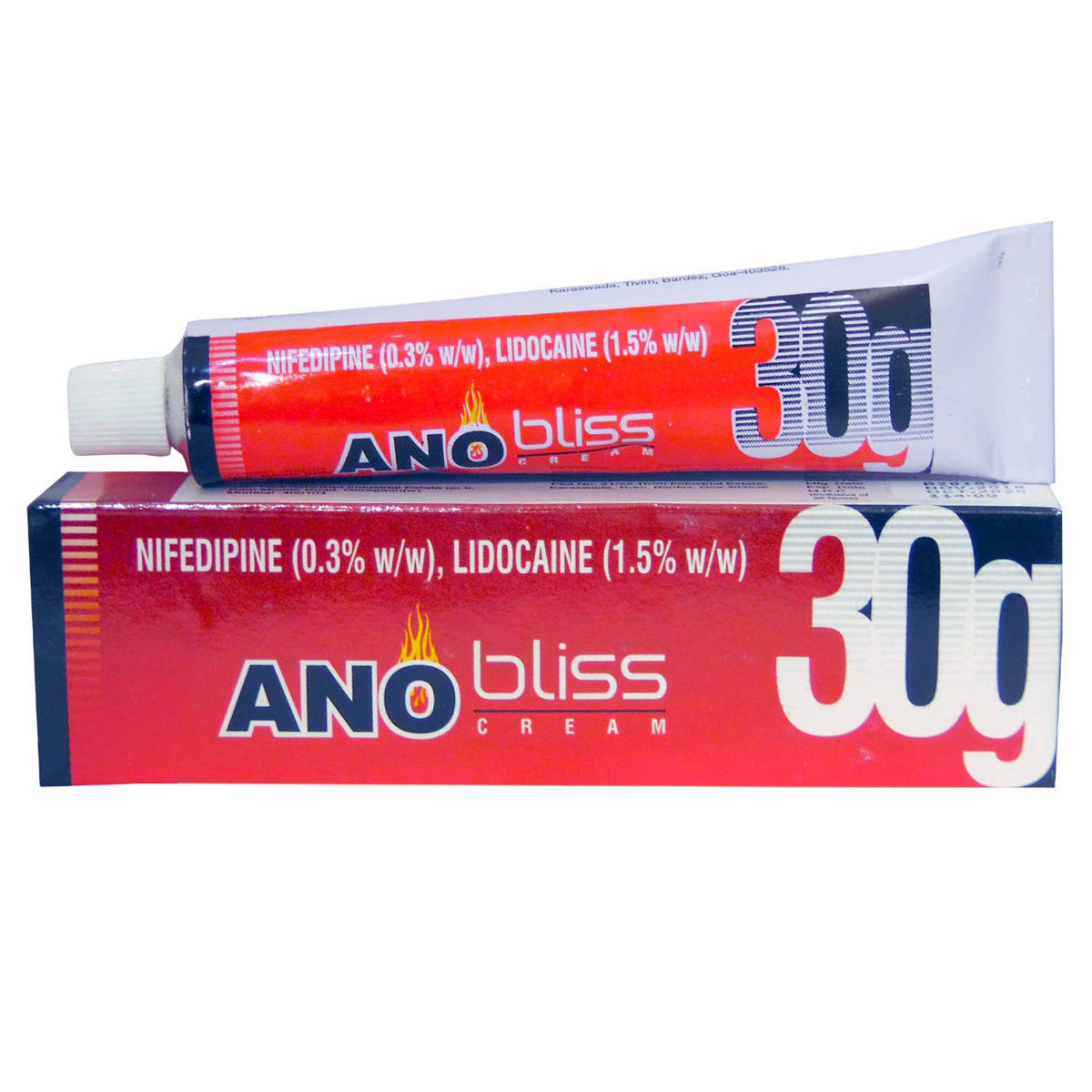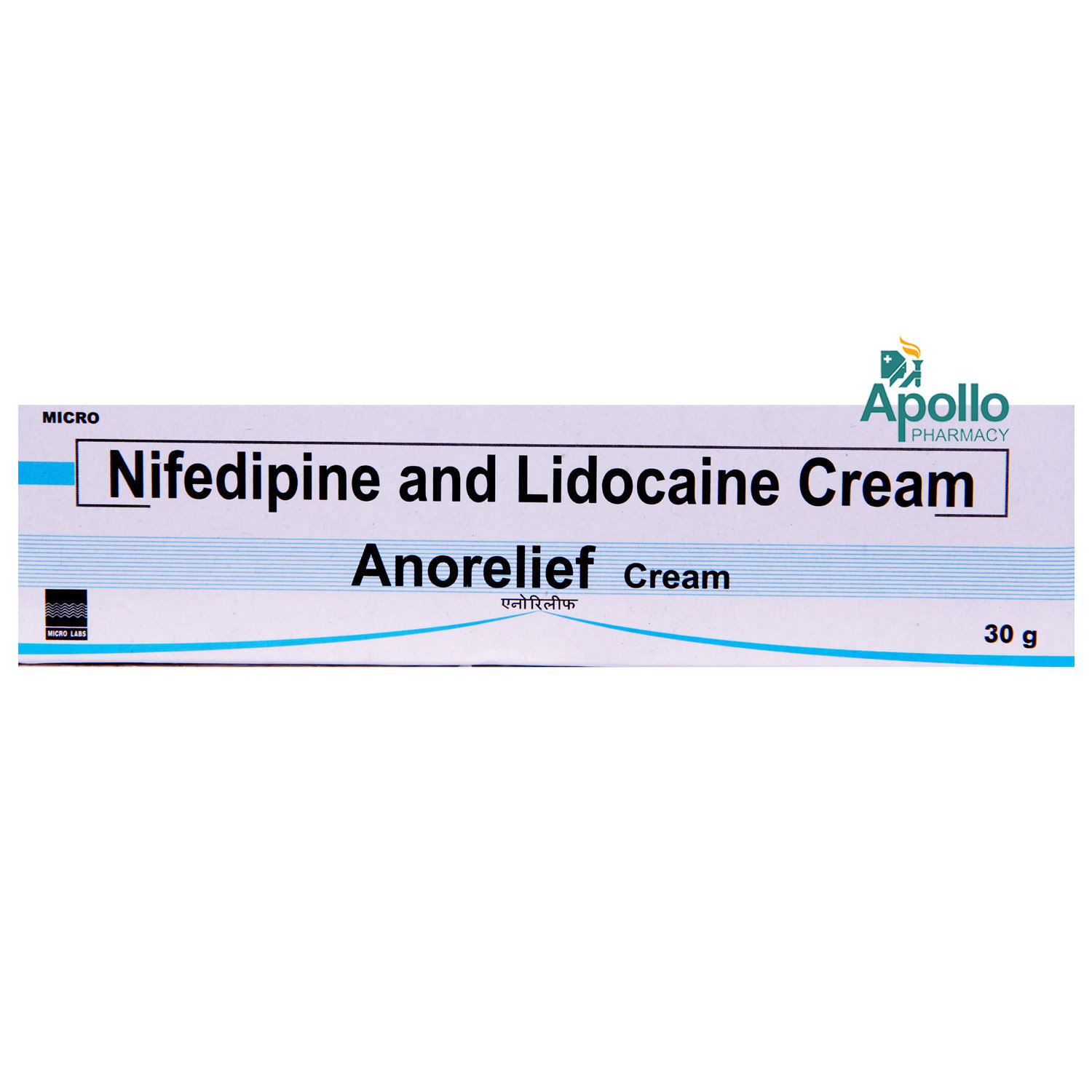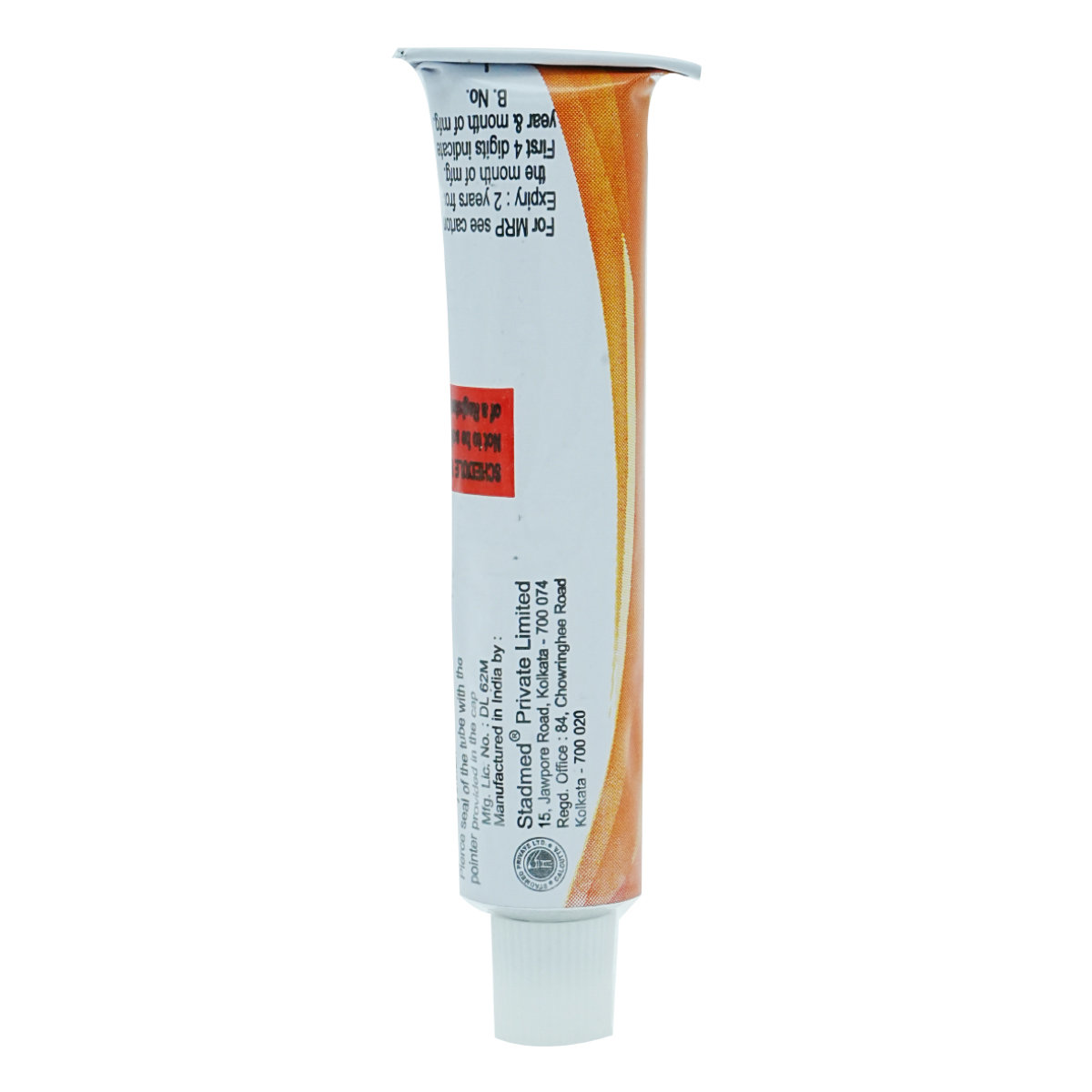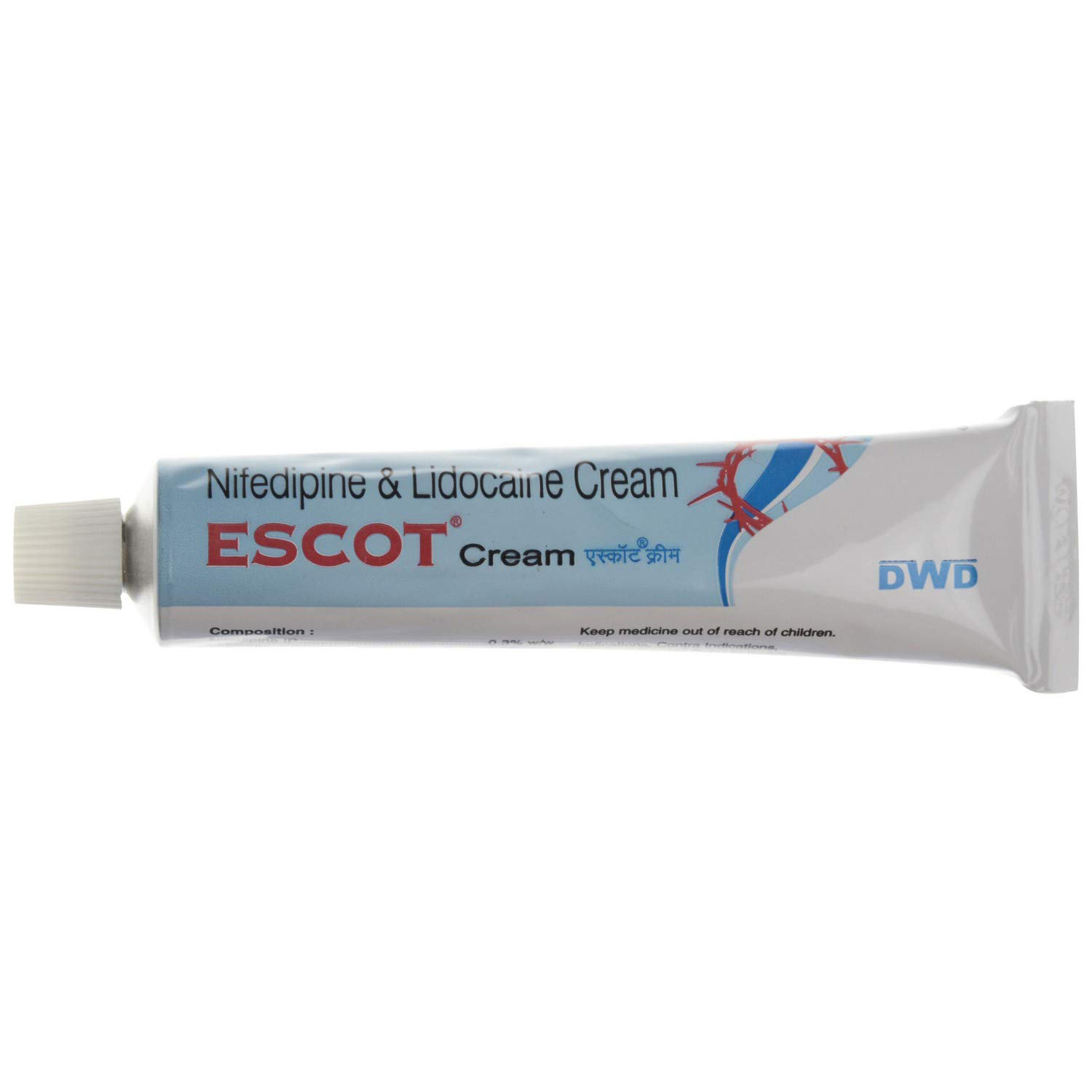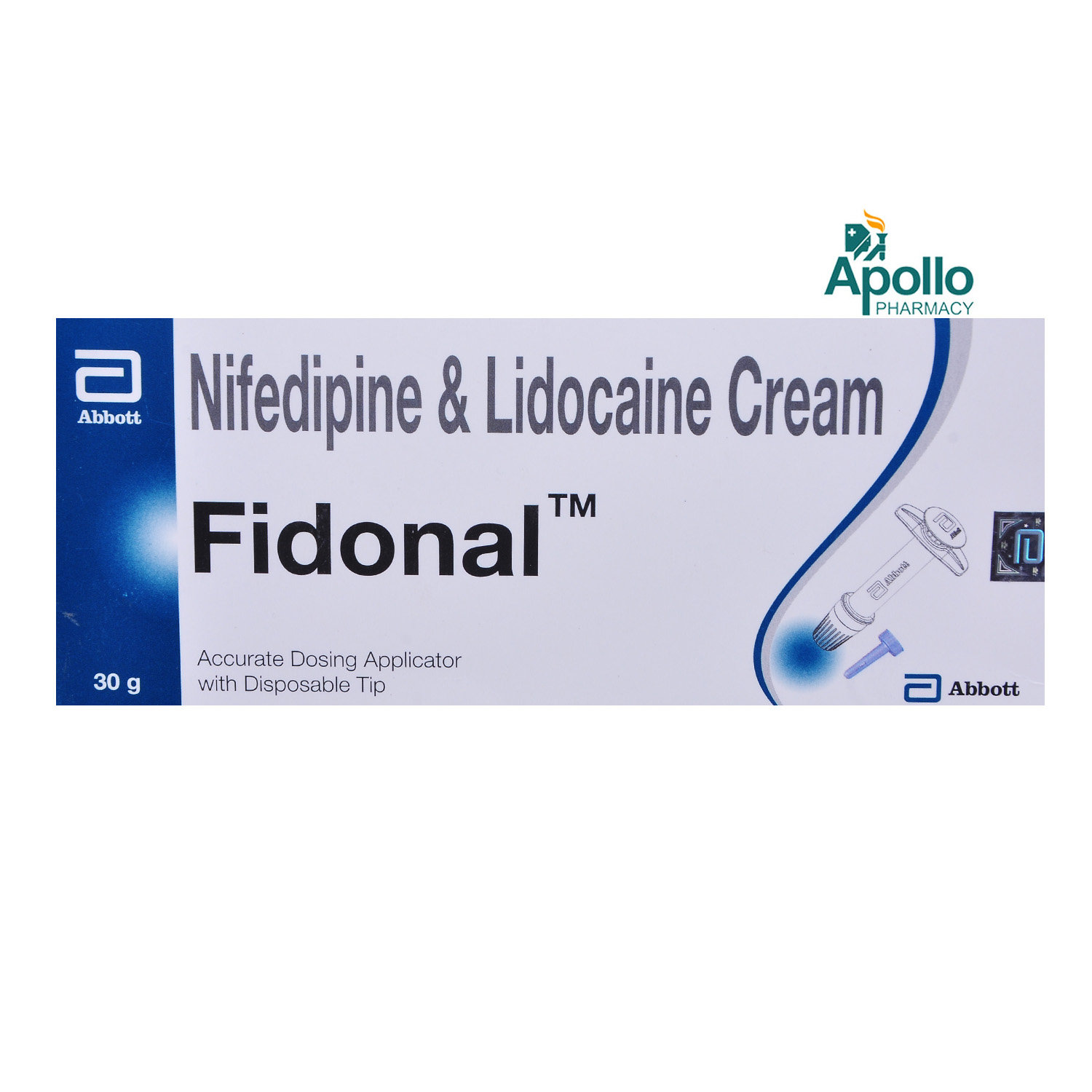Lidocaine+nifedipine
About Lidocaine+nifedipine
Lidocaine+nifedipine is a combination of two different drugs, namely Lidocaine (local anaesthetic) and Nifedipine (calcium channel blocker), used in the treatment of Anal fissure (tear in the lining of the anus). An anal fissure is usually a small tear or cut in the lining of the anus. This crack in the skin is responsible for causing extreme pain and bleeding during and after bowel movements. Sometimes these fissures can be deep enough to cause spasms in the anal sphincter, which is the end part of the anus. A person dealing with anal fissures may experience pain during/ after a bowel movement, bleeding during the stool, and a visible crack around the anus area.
Lidocaine is a local anaesthetic. It blocks pain signals from the nerves to the brain, decreasing the pain sensation. Nifedipine is a calcium channel blocker (CCB). It works in anal fissures by blocking the action of calcium on the blood vessels of the anus. Altogether the Lidocaine+nifedipine works by relaxing the smooth muscles around the anus area and promoting the proper blood flow in that region that helps to heal the fissure quickly. Lidocaine+nifedipine also reduces the anal canal pressure, which diminishes the pain and spasm in the anal region.
Lidocaine+nifedipine should be applied inside the rectum area as suggested by the doctor with the help of a rectal applicator given with the medication. Gently insert the applicator tip, just 1/2 to 1 inch consisting of medication, into the rectum and squeeze the tube to deliver the drug before taking it out. Before using this medicine, clean the affected area with gentle soap and water, and pat dry. Use the applicator for single use and discard it after every use. Never re-use it and use it regularly at the same time each day. Many persons using this drug does not face any side effect; however, possible side effects of Lidocaine+nifedipine may include burning, itching, redness, irritation, etc. However, if a person notices rectal bleeding, skin redness, or any other serious side effects, they need medical help immediately.
The usage of Lidocaine+nifedipine is not allowed in patients who are hypersensitive to any of the components present in it as it may cause serious side effects. Before starting the medication, tell your doctor about your medical history, especially if you have broken skin/infection in the area where Lidocaine+nifedipine is to be applied, heart disease, liver disease, or a certain blood disorder (methemoglobinemia). Inform your doctor before taking Lidocaine+nifedipine if you plan to get pregnant, are pregnant, or breastfeeding.
Uses of Lidocaine+nifedipine
Medicinal Benefits
Lidocaine+nifedipine consists of two drugs, namely Lidocaine and Nifedipine. Lidocaine belongs to the class of local anaesthesia and is used to diminish inconvenience or pain associated with anal fissures. Being a sedative, it works by causing temporary loss of sensation in the anal region. It does so by blocking both the initiation and conduction of nerve impulses by decreasing the neuronal membrane's permeability to sodium ions, further reducing depolarization with the resultant blockade of conduction. This way, the person gets relief from the pain associated with rectal discomfort. While Nifedipine works by relaxing the smooth muscles around the anus and promoting the blood in the anal area that helps heal the anal fissure faster. Nifedipine also blocks the action of calcium on the blood vessels of the anus. These actions reduce anal canal pressure, relieving pain and spasm. In this way, the Lidocaine+nifedipine helps in healing anal fissures.
Directions for Use
Storage
Side Effects of Lidocaine+nifedipine
- Application site reactions
- Tingling sensation
- Alterations in temperature sensations
- Swelling
- Itching
- Rash
Drug Warnings
Before taking Lidocaine+nifedipine, tell your doctor if you are hypersensitive to it. Before using this medicine, discuss your medical history, particularly if you have broken skin/infection in the area where the drug is to be applied or if you have heart disease, liver disease, or kidney disorder. Do not use this medication more frequently or in larger doses than suggested, as it is absorbed through the skin and might have serious negative effects.
Drug Interactions
Drug-Drug Interactions: Lidocaine+nifedipine may interact with different medicines. To prevent such interaction, one should tell their doctor about all the medications they are taking or if they have a previous drug history.
Food-Drug Interactions: Avoid the intake of high fatty foods or alcohol along with Lidocaine+nifedipine as it could worsen the side effects, including drowsiness.
Drug-Disease Interactions: Lidocaine+nifedipine can interact with certain diseases, so it is advisable to tell the doctor about the past or current medical history.
Drug-Drug Interactions Checker List:
Safety Advice

Alcohol
cautionYou are recommended to avoid alcohol consumption while taking Lidocaine+nifedipine. Alcohol intake, along with Lidocaine+nifedipine, may cause increased drowsiness.

Pregnancy
cautionLidocaine+nifedipine should not be used when pregnancy unless clearly necessary. So, inform your doctor if you are pregnant or suspect pregnancy. Your doctor will weigh the benefits and potential risks before prescribing Lidocaine+nifedipine.

Breast Feeding
cautionLidocaine+nifedipine should not be used in nursing mothers unless clearly necessary. So, inform your doctor if you are a nursing mother. Your doctor will weigh the benefits and potential risks before prescribing Lidocaine+nifedipine.

Driving
cautionLidocaine+nifedipine may cause drowsiness and sleepiness, so do not drive or operate heavy machinery if you feel drowsy.

Liver
cautionInform your doctor before receiving the Lidocaine+nifedipine if you have had a kidney impairment/disorder history. Your doctor will prescribe only if the benefits outweigh the risks.

Kidney
cautionInform your doctor before prescribing the Lidocaine+nifedipine if you have a history of kidney diseases/conditions. Your doctor may adjust your dose depending upon your current kidney conditions.

Children
cautionLimited information is available regarding the usage of Lidocaine+nifedipine in children, so please consult a doctor if you have any concerns.
Habit Forming
Diet & Lifestyle Advise
- Indulge yourself in mindfulness activities like yoga that help reduce stress and pain management.
- Remember to get about 7-8 hours of sleep, which will help your muscles heal fast and reduce inflammation and swelling.
- Take out some time for meditation, read books, take a warm bubble bath, spend time with family, or listen to relaxing music.
- Make a habit of eating food rich in antioxidants such as berries, onion, milk, spinach, kidney beans, dark chocolate, etc.
- Foods rich in flavonoids helps the body to heal faster by reducing inflammation. These include soy, berries, broccoli, grapes, and green tea.
- Strictly limit smoking and alcohol consumption as it may worsen the side effects of the drug.
Patients Concern
Disease/Condition Glossary
Anal fissures: It is a small tear/cut in the lining of the anus. This cut in the skin may cause bleeding and severe pain during or after a bowel movement. This disease can affect people of all ages and is often seen in young children and infants, as constipation is common in these groups. The possible causes of an anal fissure include chronic constipation, trouble passing large or hard stool, frequent diarrhoea, tearing the skin around the anus, straining during childbirth, inflammatory bowel disease (IBD), etc. Some common symptoms of an anal fissure include a crack in the skin around the anus, pain during the passage of bowel movement, a small lump on the skin near the anal fissure, bright red stool, etc.
FAQs
Lidocaine+nifedipine is a combination of two different drugs: Lidocaine and Nifedipine. Lidocaine is a local anaesthetic. It blocks pain signals from the nerves to the brain, decreasing the pain sensation. Nifedipine is a calcium channel blocker (CCB). It works in anal fissures by blocking the action of calcium on the blood vessels of the anus. Altogether the Lidocaine+nifedipine works by relaxing the smooth muscles around the anus area and promoting the proper blood flow in that region that helps to heal the fissure quickly. Lidocaine+nifedipine also reduces the anal canal pressure, which diminishes the pain and spasm in the anal region.
A person with severe heart block or heart rhythm disorder is not allowed to use this medicine as it may lead to serious side effects.
Lidocaine+nifedipine belongs to a category of local anaesthesia that acts by blocking the nerve signals of a particular body area. In this way, this medicine numbs the specific area of the body and reduces the pain associated with anal fissures. Thus, the person does not feel pain anymore.
A person of age 65 or older should use Lidocaine+nifedipine with caution, as directed by the doctor, as the chances of occurrence of side effects increase in older people.
No, Lidocaine+nifedipine does not cure fissures, but it decreases inflammation of the mucous membrane and the skin. It reduces discomfort, reduces pain and itching, providing symptomatic relief.
Apply the missed portion as soon as you recall it. However, if it's time for another application, avoid the missed dose and proceed with your regular dosing plan. Try not to apply this medication frequently or more than the prescribed dose to relieve anal fissure problems, as this medicine gets absorbed through the skin and may lead to serious side effects.
Be careful and check that no injury occurs in the numb area as you will not feel the pain, but it will still hurt you the most after the action of Lidocaine+nifedipine ends.
Anal fissure generally occurs due to trauma or injury in the anal canal. The possible reasons for anal fissures include constipation, ongoing diarrhoea, and childbirth.

